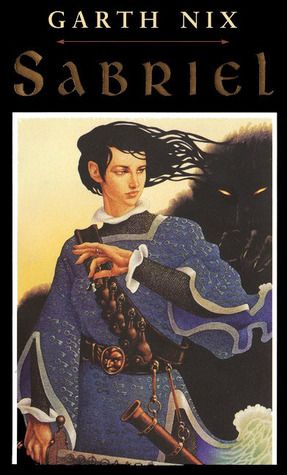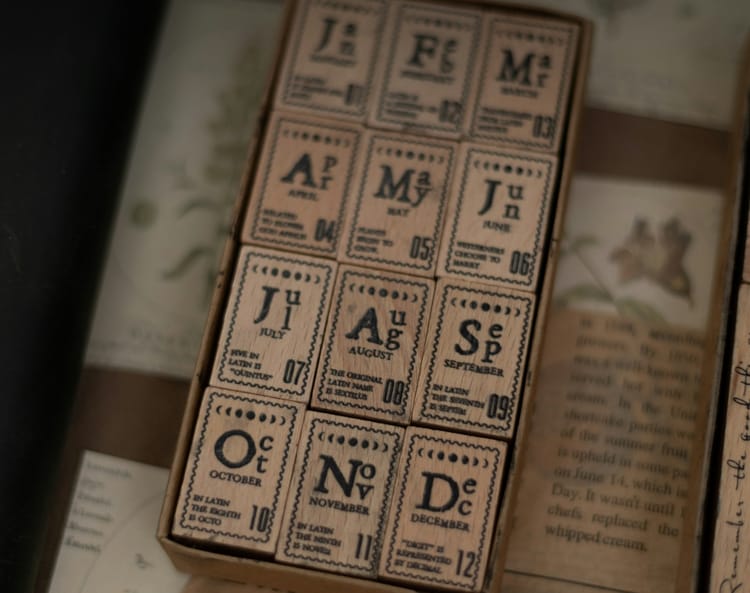Personal Canons: Abhorsen
Content Note: This piece contains mention of a character’s suicidal ideation.
Sabriel, by Garth Nix, is the first book in his Abhorsen series. It follows the story of Sabriel, the daughter of the Abhorsen — a person whose job and calling it is to send the wandering dead back to where they belong. Sabriel takes on the mantle of Abhorsen when her father goes missing. She wears the uniform, carries the magic bells that allow her to travel freely across the boundary between life and death, and carries the sword that empowers her in her role.
Her companion, Mogget, is an ancient cosmic entity called Yrael, The Eighth Bright Shiner, one of the incredibly powerful nine Free Magic beings who were the first to develop conscious thought. He is a being of chaos and violence, malevolence and nigh-unlimited strength.
He is also a cat.

I’m such a sucker for duality. The world I grew up in was obsessed with the narrowing of identity — finding roles and filling them, winnowing away complexities, outlining the boundaries of a person in thick, indelible ink. This isn’t new or unique, nor was my chafing at those boundaries. So often, I looked at choices between the kinds of person I could be, and I thought I want both.
It felt greedy to long for multiple selves — for a smart self and an artistic self, a gay self and a straight self, a boy self and a girl self and a whole other self that was outside the boundaries of what I then thought were my only two options. It felt like an overreach to want to be independent but also cared-for, private but also trustworthy, big but also very, very small. A future in which I would be allowed the fullness of myself, of every possibility, was unthinkable.
And then I met Mogget.
Mogget is bound into the form of a small white cat. He wears a small bell on a collar around his neck — a miniature version of the Abhorsen’s bell that bound him in the first place. He spends a lot of time trying to get people to take the collar off, and also a lot of time napping and requesting fish. He is wholly Yrael, and he is wholly Mogget the Cat.
I was fascinated by him. This is a character that is neither good nor bad. He helps Sabriel in her journey, saves her life multiple times, and also tries very hard to kill her. He contained contradictions I had never considered before.
All of the characters in the Abhorsen series contain multitudes. Sabriel is as self-assured as she is afraid and uncertain. Lirael — the titular protagonist of the second book in the series — is as impulsive as she is thoughtful. The Disreputable Dog (Lirael’s companion and perennial favorite of fans of the series) is fierce and protective as she is kind and mild.
What these characters don’t necessarily possess is the unyielding resilience and certainty of many SFF protagonists — at one point in Lirael, the main character seriously considers suicide as a means of escaping her circumstances. At no point does the narrative judge her or any of the characters in the book for their hesitations, their fears, their complicated flaws.
Still, for the most part, they are fundamentally good. Lirael and Sabriel want to do right. They work, generally, to make the world a better place. But Mogget! He is not fundamentally good or fundamentally evil. He’s a cat — a creature of his own interests, his own impulses, his own unknowable passions.
And the narrative doesn’t necessarily judge him, either. Even in moments when he acts as an adversary to the protagonist, he is still allowed to have a self outside of the needs and expectations of the story.
When I first read the Abhorsen books, I was very young, and I was just starting to grapple with questions of identity, duality, and choice. Bound up in those questions was a larger, overarching question of worth. I felt certain that if I didn’t answer those questions about myself correctly, I’d lose some degree of goodness. Bit by bit, parts of me would tarnish; I’d become Bad, and there would be no place in the world for me. That feeling was too much. I couldn’t face it.
But in Garth Nix’s books, I saw that perhaps the answers could be more complicated than I realized. In Sabriel, I saw that feeling afraid and unprepared didn’t have to mean surrender, so long as I could be resourceful and stubborn. In Lirael, I saw that it’s possible to survive the crushing feeling that life is unsurvivable.
And in Mogget, I saw that even if I didn’t answer all those questions about myself the right way — even if it turned out that I was Bad — there could be a place for me. In the world, in a story, in a quest to make things better. Even if I couldn’t see the good in myself, these books showed me that I might still belong.
I haven’t always remembered those lessons. There have been many seasons of my life when I’ve forgotten that it’s okay to lack simple answers; that it’s okay to be imperfect; that it’s okay to feel trapped.
But when I forget, there is a small white cat with a bell around his neck waiting to remind me. He would very much like to shed blood, and he would very much like some fish. He is not particular about the order of events.
Thank you, Mogget.
Personal Canons is a series exploring the works of genre fiction that have shaped us as readers, writers, and people. This series features contributions by established authors, new and aspiring authors, readers, and fans.





Member discussion